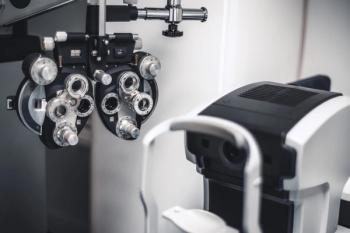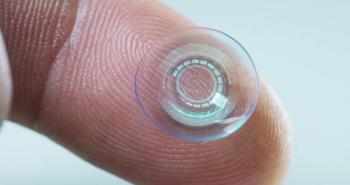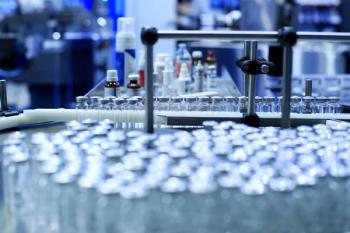The US Food and Drug Administration (FDA) has approved Susvimo (ranibizumab injection) 100 mg/mL for the treatment of diabetic retinopathy (DR). Susvimo is the first and only FDA-approved, continuous delivery treatment shown to maintain vision in people with DR with just one refill every 9 months, according to the company.
Susvimo 100 mg/mL is indicated for the treatment of patients with neovascular age-related macular degeneration (wet AMD), diabetic macular edema (DME), with the new addition of DR, to patients who have previously responded to at least two intravitreal injections of a vascular endothelial growth factor (VEGF) inhibitor medication.
Susvimo 100 mg/mL for intravitreal use via ocular implant is a refillable implant surgically inserted into the eye during a one-time, outpatient procedure, continuously delivering a customized formulation of ranibizumab over time. Ranibizumab is a VEGF inhibitor designed to bind to and inhibit VEGF-A, a protein that has been shown to play a critical role in the formation of new blood vessels and the leakiness of the vessels.
Susvimo was previously called the Port Delivery System with ranibizumab in the US.
Levi Garraway, MD, PhD, CMO and head of global product development of Genentech commented on the approval in a press release from the company.
“The approval of Susvimo for diabetic retinopathy expands treatment options for patients, offering predictable and immediate durability after implantation with only one treatment every nine months,” said Garraway. “Many patients with common retinal conditions seek alternative treatment options like Susvimo that can help preserve vision with longer intervals between treatments than regular eye injections.”
Susvimo was first approved by the FDA for the treatment of wet AMD in 2021, and DME in early 2025.
Phase 3 Pavilion study results
Warnings and precautions associated with Susvimo
Risks associated with inserting, filling, refilling, and removing the implant may lead to the following complications:
- Rhegmatogenous retinal detachment
- Temporary decrease in vision following implantation
Positive one-year results from the phase 3 Pavilion (NCT04503551) study paved the way for the FDA approval. The multicenter, randomized phase 3 study evaluated the efficacy, safety, and pharmacokinetics of ranibiziumab 100 mg/mL when refilled every 9 months. 174 patients with diabetic retinopathy without center-involved diabetic macular edema participated in the study and were randomized 5:3 to receive either ranibizumab with refills or monthly clinical observation with supplemental anti-VEGF therapy as needed based on disease progression, respectively.
Patients in the Susvimo arm received 2 loading doses of ranibizumab prior to implantation of the Port Delivery Platform at week 4. Those who received Susvimo and a subsequent refill after 9 months achieved superior improvements (at least 2 steps) on the Diabetic Retinopathy Severity Scale at 52 weeks; patients in the clinical observation arm received loading doses of ranibizumab and had Susvimo implanted at week 64.
No participants receiving ranibizumab required supplemental treatment at the one-year mark, and safety was consistent with previous trials of ranibizumab delivered via the Port Delivery Platform. The most common adverse reactions include blood or redness on the whites of the eyes, sensitivity to light, and eye pain.
References:
Harp M. FDA approves continuous delivery ranibizumab injection (Susvimo) for the treatment of diabetic macular edema. Published February 4, 2025. Accessed May 22, 2025. https://www.modernretina.com/view
















































